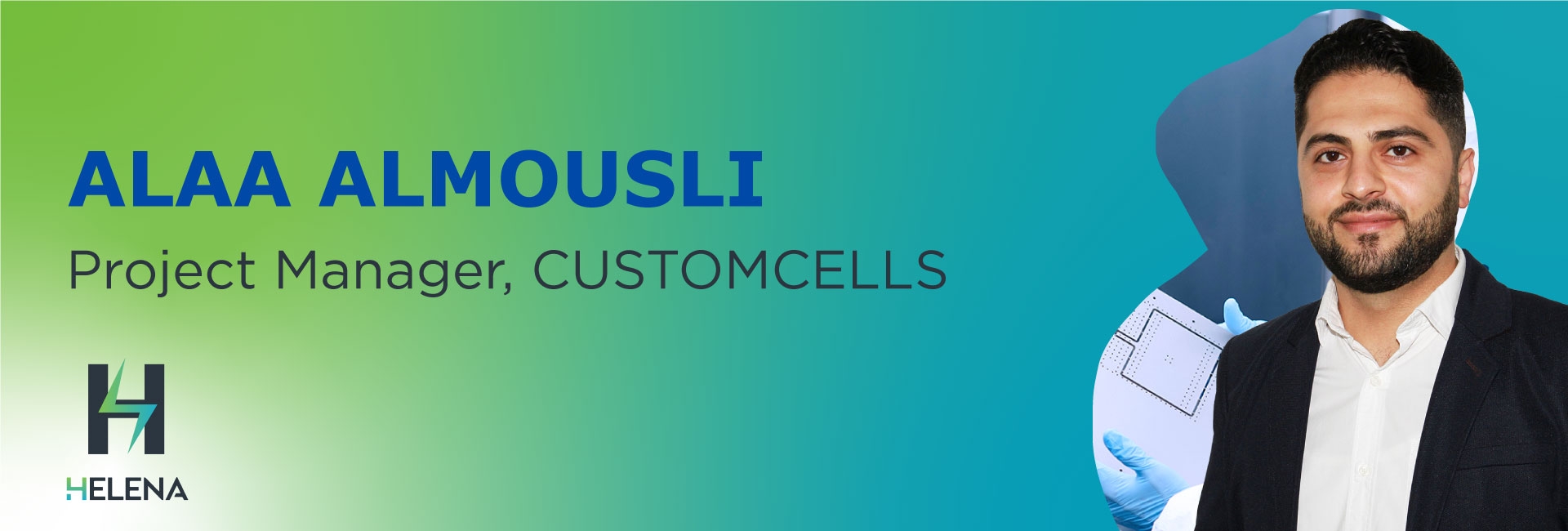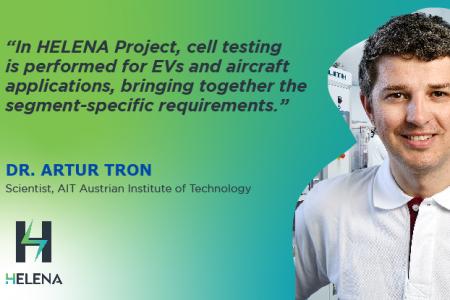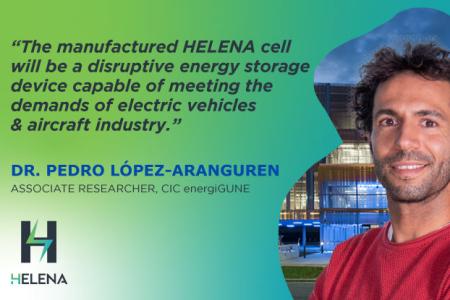CUSTOMCELLS is one of the leading companies in the fields of development and series production of special lithium-ion battery cells. Based upon modern process technologies, flexible production environments, access to an extend supply chain and thru a highly experienced R&D team CUSTOMCELLS develops customer´s application driven cell technologies and is handling the industrialization of the developed cell concepts.
Which boundaries is going to break HELENA´s batteries concerning battery cell design?
- HELENA´s cell design will include a high-capacity Ni-Rich cathode (NMC), a high-energy Li-metal anode (LiM), and a Li-Ionic Superionic Halide solid-state electrolyte to meet the requirements of electric vehicles and aircraft
- Moreover, HELENA´s solid-state battery design will respond to the need for the development of a safe, innovative solid-state battery in terms of high energy efficiency and power density (Generation 4b batteries)
- In one more respect, HELENA´s solid-state battery design is likely to provide a highly reliable solid-state battery in terms of safety and expenses
- Beyond that, new cell components compared to Li ion battery are expected to be scaled up
- In particular, the multilayer structure of catholyte electrodes will be integrated into solid-state halide batteries
Which are the challenges in terms of scaling up the HELENA´s batteries?
- The scale up of HELENA´s batteries is linked to the following challenges:
- The appropriate drying conditions for the preparation of electrodes as well as assembling the cells on a larger scale will be a major challenge, especially in the case of lithium metal and halide solid electrolyte
- On one hand, lithium metal is very reactive under atmospheric conditions. On the other hand, the halide electrolyte is hygroscopic and must be treated under dry room conditions
- Halides contamination would be a point of concern in the case of producing other cathodes and anodes in the plant. This type of impurity can lead to side reactions within the cell in later stages
Within the HELENA project CUSTOMCELLS leads the scaling of electrode production processes and cell assembly in the HELENA project. This involves investigating the manufacturing conditions and assessing the transferability of the production processes to large-scale manufacturing. In addition, CUSTOMCELLS manufactures and tests high- performance demonstrators - based.



